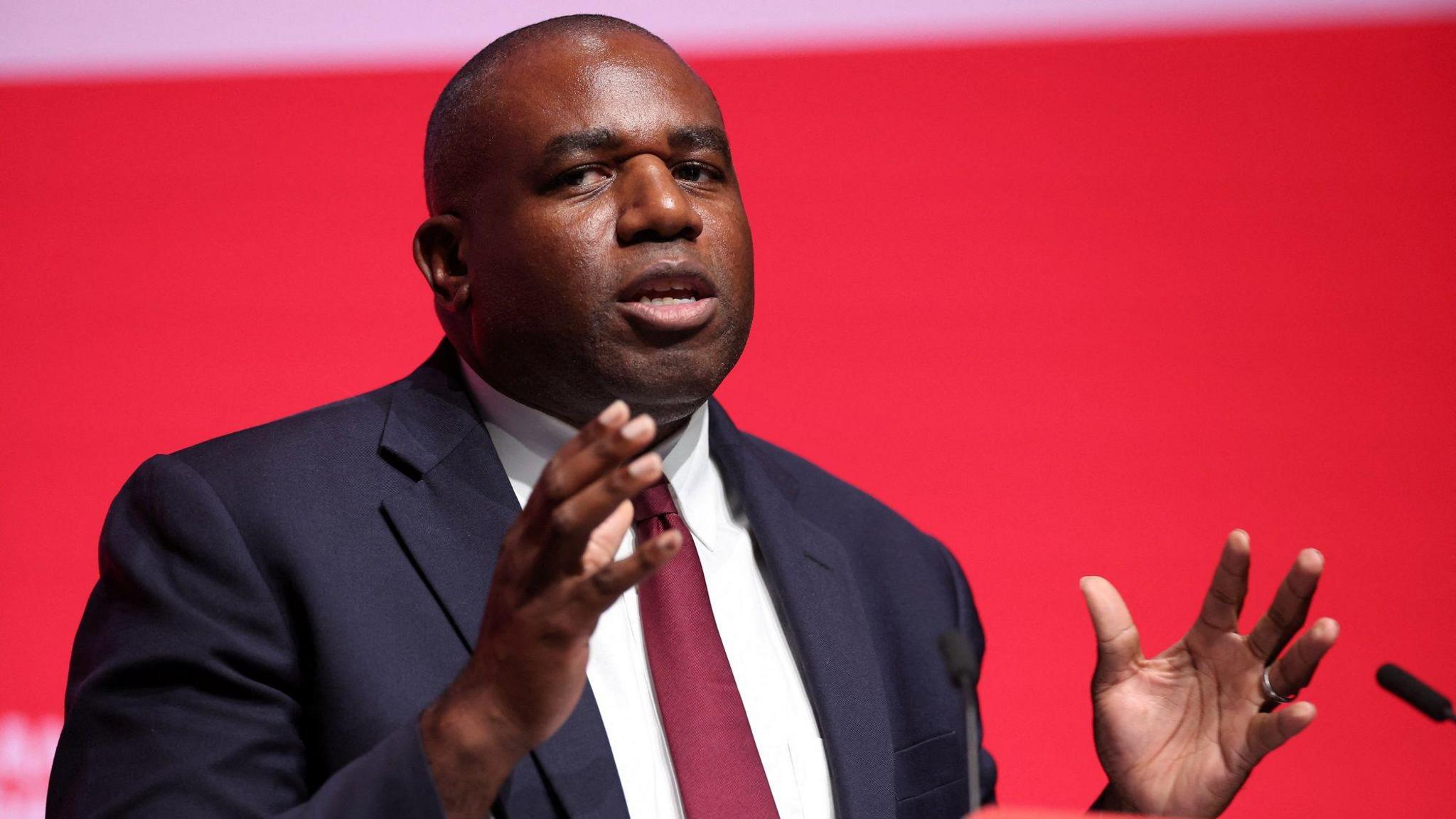We must show nerve in support for Ukraine, says Lammy

- Published
The foreign secretary has said allies must show "nerve" in their support for Ukraine, as the country continues to call for permission to fire Western long-range missiles into Russia.
David Lammy said there was a "real-time discussion" between allies about how to help Ukraine heading into the winter.
Speaking alongside him at a fringe event at Labour's party conference, Ukraine's ambassador to the UK Valerii Zaluzhnyi said lifting restrictions on the use of weapons against military targets in Russia was "critical".
Ukraine already has supplies of long-range missiles from the UK, the United States and France but at the moment it is only allowed to fire them at targets within its own borders.
Mr Lammy told the event: "This is a critical time for nerve and for guts and for patience and for fortitude on behalf of allies who stand with Ukraine."
He added: "I am not going to, as foreign secretary, of course, comment on operational detail, because that can only aid Putin.
"But there is a very real-time discussion across allies about how we can support Ukraine as we head into the winter."
Earlier, Mr Zaluzhnyi had described weapons with long-range capabilities as "critically important".
"Lifting restrictions on use of weapons against military targets in Russia is critical. This would help protect civilians from Russian missiles," he said.
"This winter in Ukraine will be the most difficult. As we know, I believe in the resilience of the Ukrainian people, but without additional help the price will be very, very high."
What are Storm Shadow missiles and why are they crucial for Ukraine?
- Published20 November 2024
No new pledge on Ukraine missiles after Starmer-Biden talks
- Published14 September 2024
Earlier this month, Prime Minister Sir Keir Starmer and US President Joe Biden met in Washington to discuss the issue.
There had been strong indications the US and the UK were poised to lift the restrictions on long-range missiles but no confirmation came after the talks.
Discussions are expected to continue at the UN General Assembly in New York next week, which Sir Keir and Biden are attending alongside Ukrainian President Volodymyr Zelensky and other world leaders.
Since Russia launched its full-scale invasion of Ukraine in February 2022, Ukrainian cities and front lines have been under regular bombardment.
Many of these missiles are launched by aircraft deep inside Russia and Kyiv says not being allowed to hit the bases from which these attacks are launched hinders its ability to defend itself.
Zelensky has repeatedly pleaded for the restrictions on the use of long-range missiles to be lifted.
However, Russian President Vladimir Putin has warned against this, arguing it would represent "direct participation" by Western allies in the war.
Ukraine’s allies have been reluctant to do anything which could drag them into direct conflict with Moscow.
In his speech to the main conference hall later, Lammy insisted the government would always stand with Ukraine and had committed £3bn per year in military aid "for as long as it takes".
"We need to show Putin that Britain - and its allies - are not going anywhere," he said.
He also spoke about the "worrying escalation" in fighting between Israel and Lebanon-based armed group Hezbollah in recent days, which he said was in "nobody's interest".
"Our message to all parties is clear: we need an immediate ceasefire from both sides so that we can get to a political settlement," he said.
"So that Israelis and Lebanese civilians can return to their homes and live in peace and security."
He repeated his call for British nationals still in Lebanon to leave immediately "for your own safety".